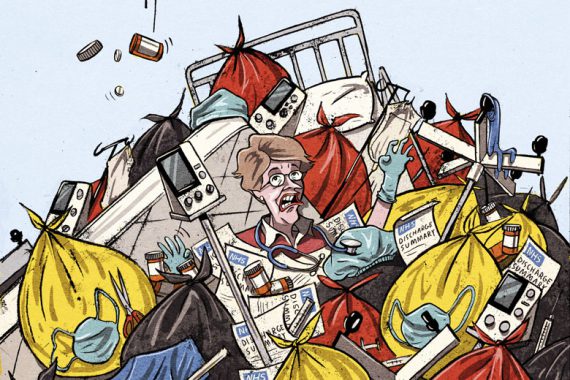Pulse 2019 review: GPs continue to be dumped on

GPs just aren’t busy enough.
You’d be forgiven for thinking that’s how colleagues in secondary care view things, given their penchant for offloading work in primary care’s direction.
Because this continues to be a problem for far too many GPs, three years after provisions were written in to the hospital contract that were supposed to put a stop to the practice.
In fact, nearly half (45%) of patients who don’t show up to their first hospital appointment are immediately discharged back to their GP, according to a Pulse investigation into workload dumping.
This one-strike-and-you’re-out approach flies in the face of rules outlined in the 2016/17 NHS Standard Contract for hospitals, which bans blanket policies for automatically discharging DNAs.
Instead, discharge decisions should be made on a case-by-case basis.
Yet, it remains the default position at many of the 84 trusts who responded to Pulse’s freedom of information request. And the figures have barely changed since the contract came into force.
As a result, GPs are taking on even more work – work that should be the responsibility of hospital consultants – and in some cases, patient care is compromised.
It’s not just DNA discharges that are being foisted on frustrated GPs.
The same contract says hospitals should send patient discharge summaries to GPs within 24 hours. But data provided by 51 trusts showed there was a 12% increase between 2015 and 2018 in the number of discharge summaries being sent beyond the 24 hours specified by the contract.
That means GPs aren’t getting crucial information about their patients’ conditions quickly enough, potentially putting patients in danger.
Last year, 55-year-old Mary Chapman died after being discharged from hospital and not being appropriately followed up by her GP. The GP didn’t receive the patient’s discharge summary – nor any request to carry out a follow-up blood test – and Ms Chapman went on to develop a ‘dangerously low’ platelet count. She later died.
Cheshire’s coroner ruled that the lack of follow-up didn’t directly cause the patient’s death, but said that ‘ongoing uncertainties’ in the hospital’s ‘lengthy’ and ‘unwieldy’ discharge policy could lead to deaths in the future.
In this case, the hospital in question was a private provider – but it’s not difficult to envisage the same thing happening in the NHS. There but for the grace of God go I.
One area of workload dumping has, on the surface at least, improved slightly.
Pulse found that consultant-to-consultant referrals had risen 6% between 2015 and 2018, meaning marginally fewer patients are sent back to their GP to be referred to another specialist for a related condition.
But, given than national referrals have increased by a similar proportion, and when you factor in all the other extra work they are being burdened with, many GPs don’t feel like this is much of a win.
So much for the season of goodwill.
Pulse July survey
Take our July 2025 survey to potentially win £1.000 worth of tokens











